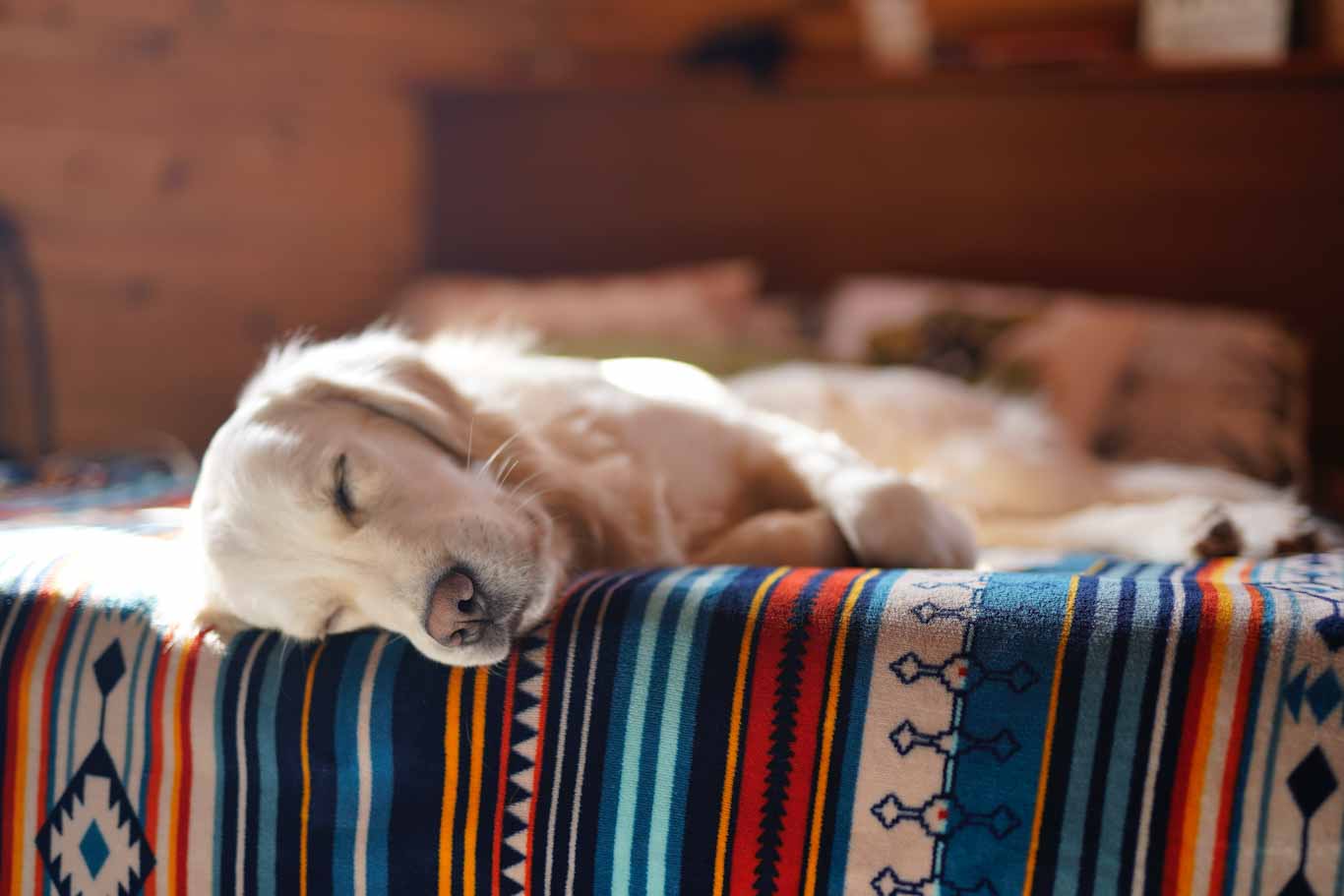
Sleep Tips for Pet Parents
August 20, 2020
Author: Josie Sivigny
Animals have very different sleep needs than their humans, but it doesn’t mean the whole house has to lose sleep. There are plenty of small adjustments you can make to your daily life that will help your pet—and you—get the best sleep possible.

How to help your pet get the best sleep
If your dog or cat suddenly experiences radical changes in their sleep, it’s always a good idea to let their vet know and get expert guidance on what might be the root cause of the issue. If there’s no medical reason for the sudden change, however, there are a few things to check out in your house that might be keeping them up.
Noise
Your animals can hear up to four times better than you do—which means that something bothering them might not even be audible for you. Make sure none of your electronics are emitting high-pitched noises that could be disruptive. If you live in a noisy neighborhood with lot of other animals, a white noise machine may be able to help create a more peaceful environment for your pet. White noise can cover any mysterious noises that disturb your pet, and can even promote better sleep in general.
Comfy bed
While some pets don’t mind curling up with you at night—some of them want a space of their own. Dogs in particular sometimes feel safer in den-like environment like a cozy crate. The right pet bed could make all the difference, especially for senior animals. Look for a bed that is cozy but still durable, with a cover that’s washable in case of accidents. Creating the comfiest space possible will help your pet feel at home and want to snooze away. Have you seen our pet bed, by the way?
Exercise
Some pet breeds were born to run, prance, and tumble all day long. If your pet doesn’t seem to sleep as much as they should—the average dog sleeps 12 to 14 hours a day, and the average cat naps for 12 to 16 hours!—it may be that they aren’t exerting themselves enough. Add in an extra ten minute walk for your pup, or invest in some toys that exhaust your cat’s mental stamina to help them get the workouts they need, so they sleep a little better at night.

How to help a puppy sleep
New pups are a joyous addition to any home, but bringing home a puppy can lead to some restless nights for the whole family. Puppies need almost 20 hours of sleep a day, and they’ll need a comfy and secure place to do it.
In addition to a comfy place to sleep, and getting plenty of exercise, a young puppy may need some more considerations before bedtime. A late-night potty break should help everyone get the longest stretch of sleep as possible. You’ll also want to avoid feeding them right at bedtime. Instead, give your pup a smaller meal a few hours before should keep them feeling full until the morning. If your puppy is under 16 weeks old and not making it through the night, be patient. Most dogs sleep through the night by four months, but, until then, some just aren’t ready to go all night without a break.

How to help kittens sleep
Kittens really like warm, cozy places to sleep, especially when they are super young. Getting a bed with high walls that can house their toys and warm, soft blankets will help them feel safe and snuggled up. Some cats prefer to sleep off the floor to feel safe, so a cat tower may be their preferred way to sleep. Keep in mind that cats are nocturnal creatures, so you’re bound to hear from them at least a little bit during the night, but make sure they get enough stimulation during the day and aren’t hungry at bedtime.

